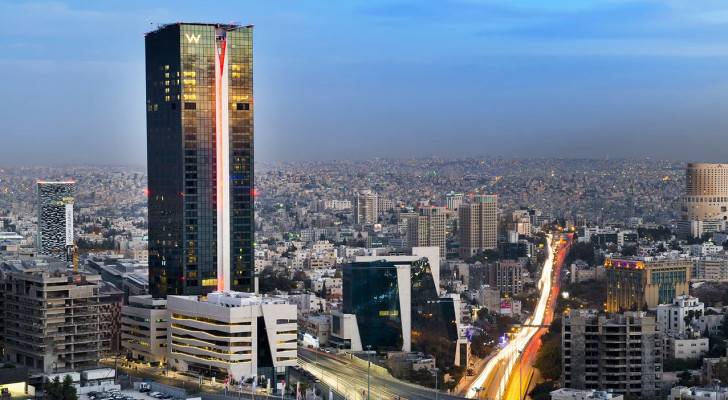Amman, Jordan.
Jordan Investor Confidence Index drops to four-year-low
Investor confidence in the Jordanian economy has dwindled for the fifth consecutive time, registering a 16.4 percent decline, according to the latest study by the Jordan Strategy Forum (JSF).
The JSF noted that this notable decline requires government action to stabilize the macroeconomy.
Dr. Nasreen Barakat, the JSF’s President, highlighted that the drop in confidence in Jordan's economic index is a significant factor contributing to the decrease in investor trust.
In an interview with Roya, Barakat noted that the growth rate in the first quarter of 2024 was the lowest in recent periods, at 2 percent, compared to 2.8 percent in the first quarter of 2023.
She explained that the budget deficit and increasing debt have significantly impacted investor confidence.
Economic expert in investment affairs, Mukhlid Al-Omari, stated that regional turmoil has directly affected macroeconomic indicators. However, Al-Omari believes the government should have taken feasible measures to prevent the decline in economic indicators and their impact on investment.
During his interview with Roya, Al-Omari suggested enhancing investment opportunities through investment funds and increasing government participation in strategic major projects.
He called for a package of incentive measures, such as reducing energy and human resource costs, noting that these could have attracted investors despite regional instability.
The Jordanian Investor Confidence Index, released by the Jordan Strategy Forum, fell by 16.4 percent in the first quarter of this year—the largest drop since the first quarter of 2020—falling to 135.5 points from 162.2 points in the previous quarter (Q4 2023).
The economic activity confidence index dropped from 145.2 points in Q4 2023 to 100 points in Q1 2024, marking the most significant decline since the first quarter of the pandemic year.
The real GDP growth rate was about 2 percent in Q1 2024, compared to 2.8 percent in the same quarter last year and approximately 2.3 percent in Q4 2023.
The budget deficit after grants was around 428.8 million dinars in Q1 2024, compared to 463.3 million dinars in Q4 2023 and about 382.9 million dinars in Q1 2023.
Foreign direct investment inflows amounted to approximately 95 million dinars in Q1 2024, compared to 98 million dinars in the previous quarter.
The industrial production index dropped to 85.3 points in Q1 2024, down from 88.8 points in Q4 2023.
Conversely, the confidence index in the monetary system improved to 200 points in Q1 2024, up from 166.4 points in the previous quarter.
Foreign currency reserves at the Central Bank grew from 12.85 billion dinars in Q4 2023 to 13.19 billion dinars in Q1 2024.
The interest rate differential between the dinar and the dollar widened from 2.13 percent in Q4 2023 to 2.17 percent in Q1 2024.
The value of returned checks decreased by 9.6 percent, from 441 million dinars in Q4 2023 to 398.8 million dinars in Q1 2024.
The financial system confidence index dropped from 191.9 points in Q4 2023 to 142.1 points in Q1 2024.
The stock market index increased by 0.6 points, reaching 4,416.9 points in Q1 2024, compared to the previous quarter.
The ratio of foreign investor purchases to sales on the Amman Stock Exchange fell to 53.8 percent in Q1 2024, compared to 169.1 percent in Q4 2023.
Bank credit granted to the private sector grew by 1.3 percent in Q1 2024 compared to the previous quarter, reaching 30.56 billion dinars.




